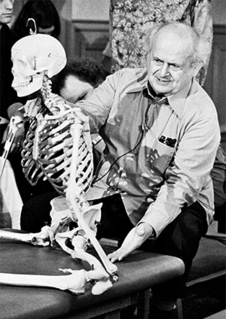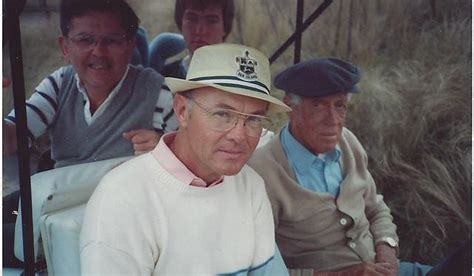A Quote by Kiefer Sutherland
Westerns just thematically, as a genre, have kind of a few tent poles that I really admire, and one of them is this perception that life was simpler back then. And with that perception goes that people were good or people were bad. You survived by your strengths or you perished by your weaknesses.
Related Quotes
Find your true weakness and surrender to it. Therein lies the path to genius. Most people spend their lives using their strengths to overcome or cover up their weaknesses. Those few who use their strengths to incorporate their weaknesses, who don't divide themselves, those people are very rare. In any generation there are a few and they lead their generation.
Perception without the word, which is without thought, is one of the strangest phenomena. Then the perception is much more acute, not only with the brain, but also with all the senses. Such perception is not the fragmentary perception of the intellect nor the affair of the emotions. It can be called a total perception, and it is part of meditation.
The problem a lot of writers have is that they really, really enjoy people saying, "You're brilliant." They let their self-perception be dictated by reader response. But if you're going to let other people make you feel good, you're going to end up feeling bad when they say the opposite. You've got to be a cultural stoic. Then you won't be devastated by people who respond negatively. Of course, the downside is that it sort of stops you from being able to enjoy people liking your work.
I was on some bad teams, and I played bad as a young player, certainly, at times. And that all mounts. Yeah, that all mounts. The perception. Everything that goes into that. And so, yeah, I think to kind of get over the hump of that, to change perception, it can be difficult. It's a tall task. And it takes a long time.
I admire people who are suited to the contemplative life. They can sit inside themselves like honey in a jar and just be. It's wonderful to have someone like that around, you always feel you can count on them. You can go away and come back, you can change your mind and your hairdo and your politics, and when you get through doing all these upsetting things, you look around and there they are, just the way they were, just being.
Paradigms power perception and perceptions power emotions. Most emotions are responses to perception - what you think is true about a given situation. If your perception is false, then your emotional response to it will be false too. So check your perceptions, and beyond that check the truthfulness of your paradigms - what you believe. Just because you believe something firmly doesn't make it true. Be willing to reexamine what you believe.
The problem a lot of writers have is that they really enjoy people saying, "You're brilliant." They let their self-perception be dictated by reader response. But if you're going to let other people make you feel good, you're going to end up feeling bad when they say the opposite. You've got to be a cultural stoic. Then you won't be devastated by people who respond negatively. Of course, the downside is that it sort of stops you from being able to enjoy people liking your work.
Ask how you’d live your life differently if you knew you were going to die soon, then ask yourself who those people you admire are and why you admire them, and then ask yourself what was the most fun time in your life. The answers to these questions, when seen, heard, and felt, provide us with an open doorway into our mission, our destiny, our purpose.
The private experience that you perceive forms your world, period. But which world do you inhabit? For if you altered your private sensations of reality, then that world, seemingly the only one, would also change. You do go through transformations of beliefs all the time, and your perception of the world is different. You seem to be, no longer, the person you that you were. You are quite correct — you are not the person that you were, and your world has changed, and not just symbolically.
I've known people who thought that reaching their potential would come from shoring up their weaknesses. But do you know what happens when you spend all your time working on your weaknesses and never developing your strengths? If you work really hard, you might claw your way all the way to mediocrity! But you'll never get beyond it.
Your weaknesses are the key to the unimaginable bigger future that God has envisioned for you. Your strengths are probably already bearing all the fruit they can. They will continue to bear those good fruits in your life, but at some point they will begin to plateau. Your richer, more abundant future is intimately linked to your weaknesses.



































